Every Flo has its ebb
An app review that I promise will make sense by the end
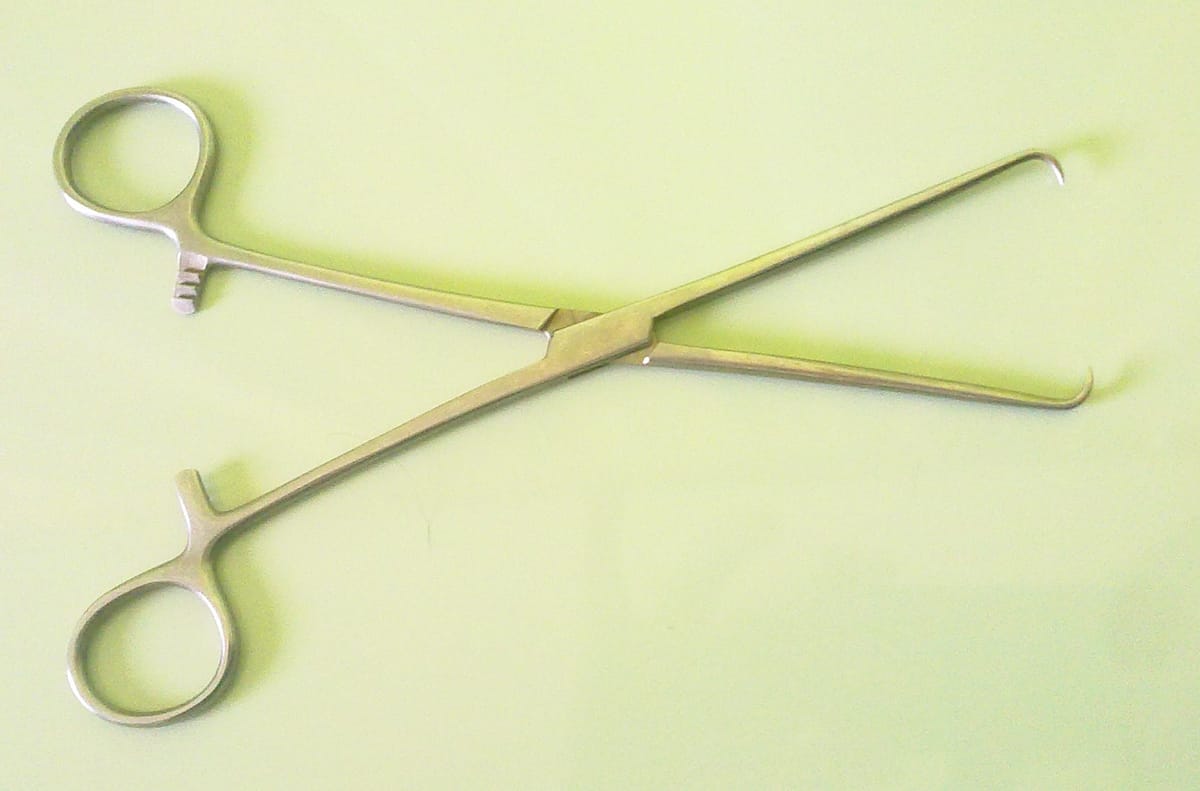
1.
As someone who works on apps for a living, I can tell you that the period-tracking app Flo is a rare feat of engineering and design. Artsy yet sleek, full-featured yet uncluttered, densely informative yet easy to follow, even for me. Across dozens of screens the sole problem I noticed was an instance of “urinary track” instead of “tract” — a content issue, not even architectural. The app is functionally flawless. Under different historical conditions, I’d be a power user. An evangelist.
2.
The tenaculum has been commonly used in gynecology for over a century. The predecessor of the cervical tenaculum was a forceps bullet extractor — a common surgeon’s tool used to extract bullets on the battlefields. During the Civil War in the United States, this tool was used to remove bullets from the patient’s body or to pull out arteries to tie them off. Inspired by the shape of the bullet extractor, Samuel Jean Pozzi, a pioneer of modern gynecology, developed, at the end of 19th century, a gynecological tool called the Pozzi forceps, also known as the tenaculum. Since then, its shape has hardly changed and persists until today.
— Wikipedia, Tenaculum

3.
Across users and clinicians, across specific features and general satisfaction, Flo boasts truly impressive metrics. 90% of users, for example, say Flo accurately predicts the start of their next period.
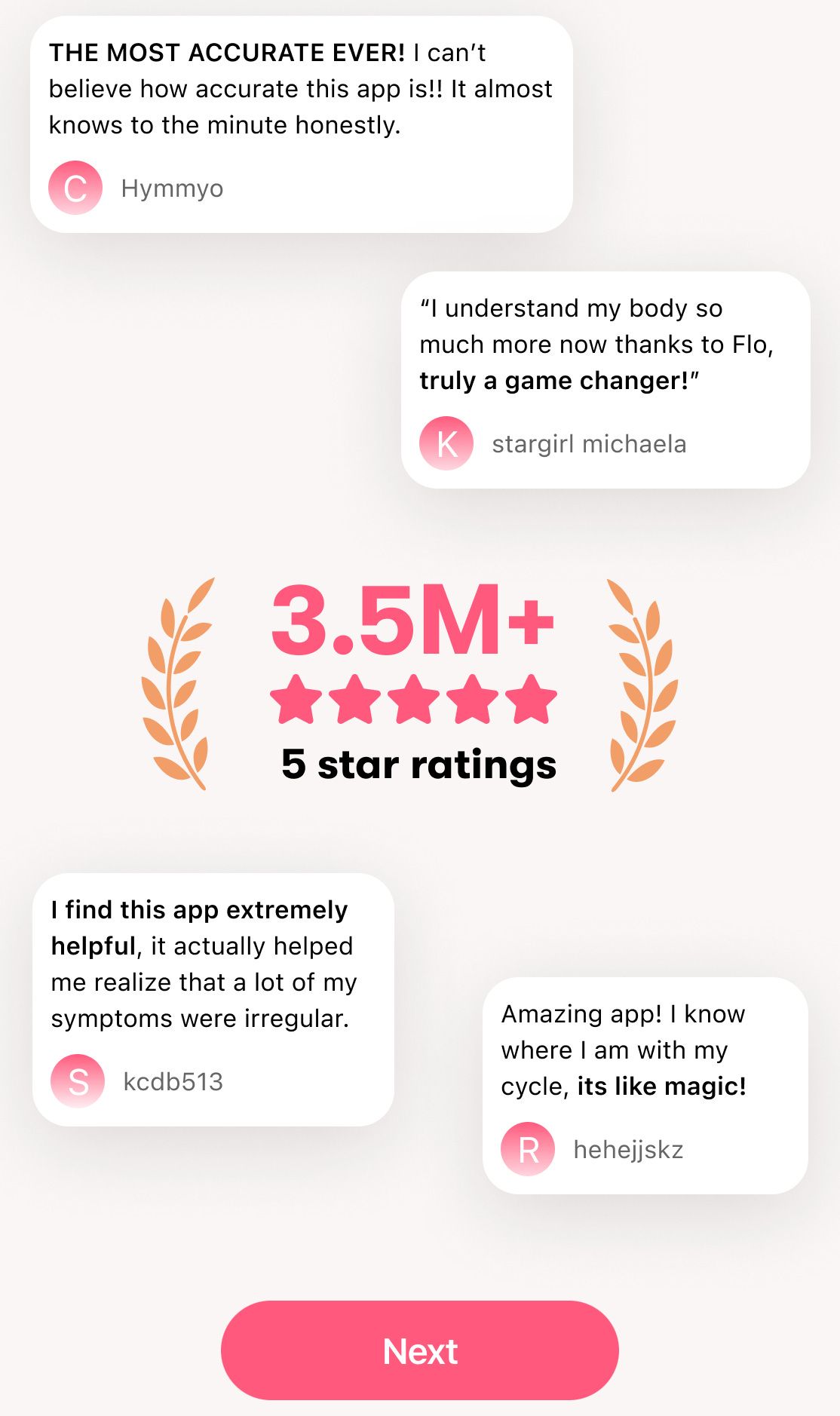
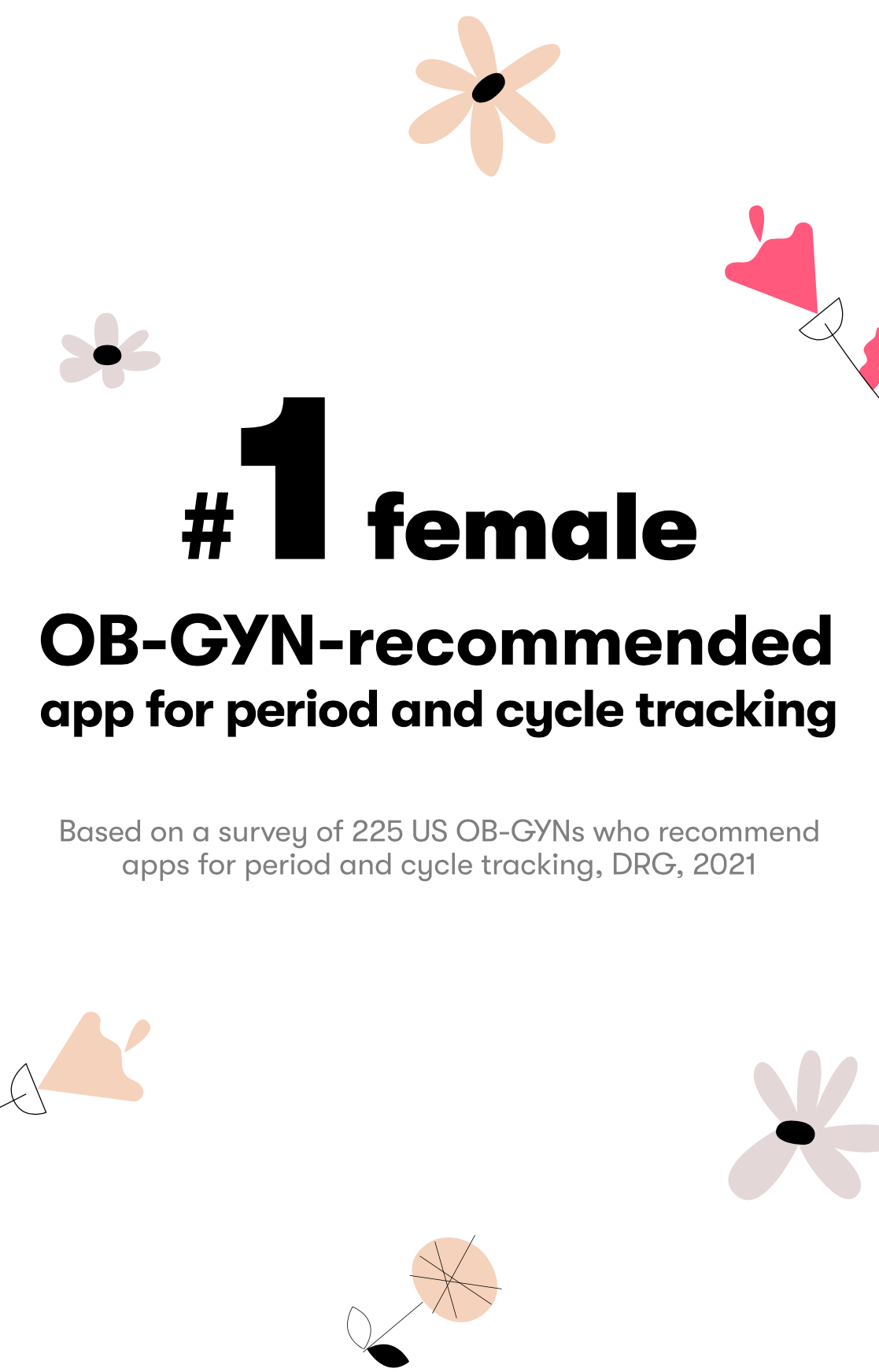
4.
Business relations between IBM and the Hitler regime continued uninterrupted in the face of broad international calls for an economic boycott. Willy Heidinger, who remained the chief executive of Dehomag, the German subsidiary of which IBM owned 90%, was an enthusiastic supporter of the Hitler regime.
On April 12, 1933, the German government announced plans to conduct a long-delayed national census. The project was particularly important to the Nazis as a mechanism for the identification of Jews, Roma, and other ethnic groups deemed undesirable by the regime. Dehomag offered to assist the German government in its task of ethnic identification, focusing upon the 41 million residents of Prussia. This activity was not only countenanced by Thomas Watson and IBM in America, but was actively encouraged and financially supported, with Watson himself traveling to Germany in October 1933 and the company ramping up its investment in its German subsidiary from 400,000 to 7,000,000 Reichsmark — about $1 million (equivalent to $20.9 million in 2021).
— Wikipedia, IBM and the Holocaust
5.
I struggle to imagine an app telling me so much about what my body is doing — nutrition-wise, let’s say — for the cost of a coffee a month. But Flo does this, and is willing to show you instead of telling you with a generous free trial. In an ingenious one-two punch of marketing and community-building, they also offer a heavily discounted “Friends Plan.”
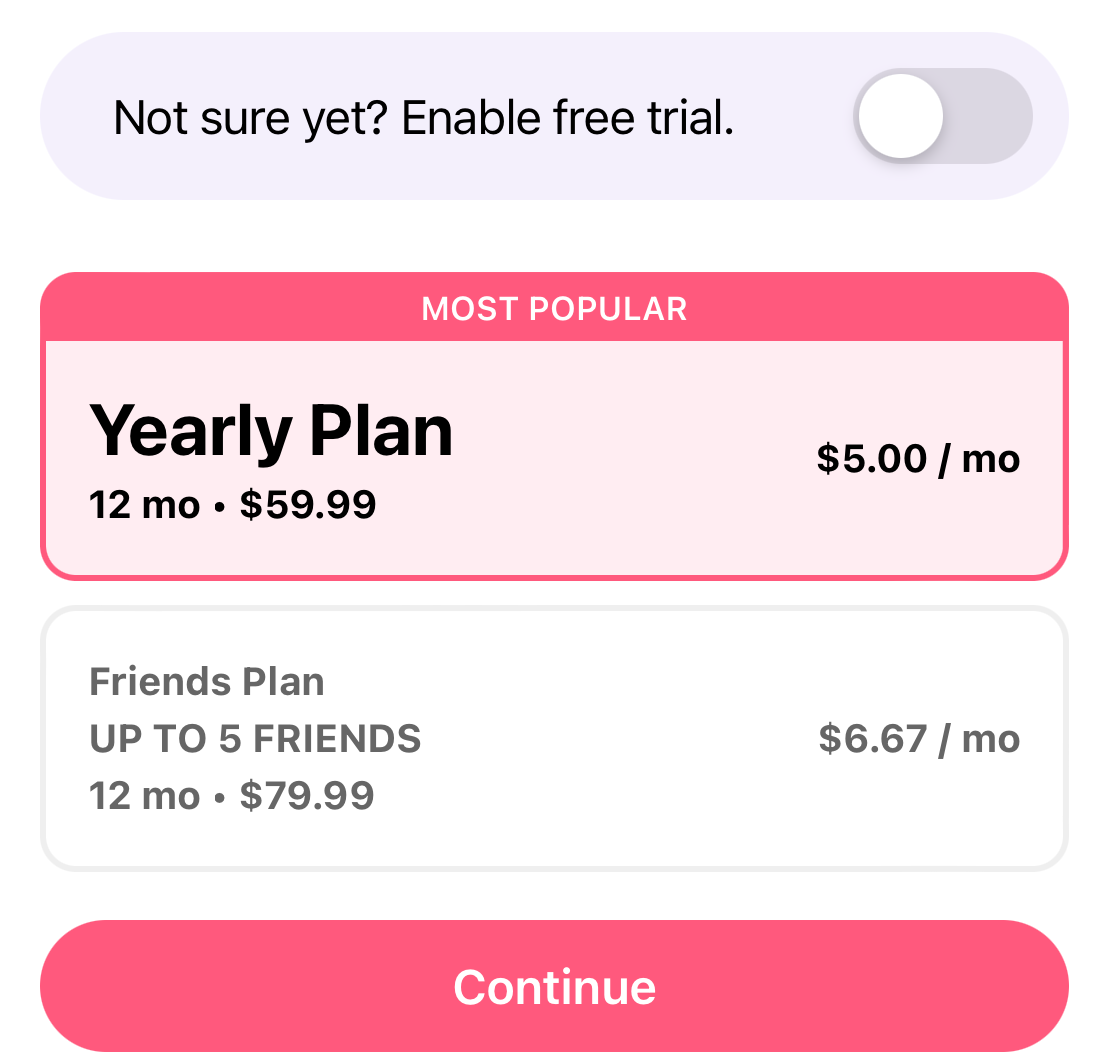
6.
FaceMash was opened in 2003, developed by Mark Zuckerberg; he wrote the software for the FaceMash website when he was in his second year of college. The website was set up as a type of "hot or not" game for Harvard students. The website allowed visitors to compare two students' pictures side by side and let them decide who was more attractive.
While writing the software, Mark Zuckerberg wrote the following blog entries:
I'm a little intoxicated, not gonna lie. So what if it's not even 10 p.m. and it's a Tuesday night? What? The Kirkland [dorm] facebook is open on my desktop and some of these people have pretty horrendous facebook pics. I almost want to put some of these faces next to pictures of farm animals and have people vote on which is more attractive.
— 9:48 pm
Yea, it's on. I'm not exactly sure how the farm animals are going to fit into this whole thing (you can't really ever be sure with farm animals...), but I like the idea of comparing two people together.
— 11:09 pm
— Wikipedia, History of Facebook
7.
The final onboarding step is an unusually immersive walkthrough. Descriptive tooltips guide you through exactly how to get started, and they’re not the kind you just dismiss one at a time. The app waits while you complete each step.
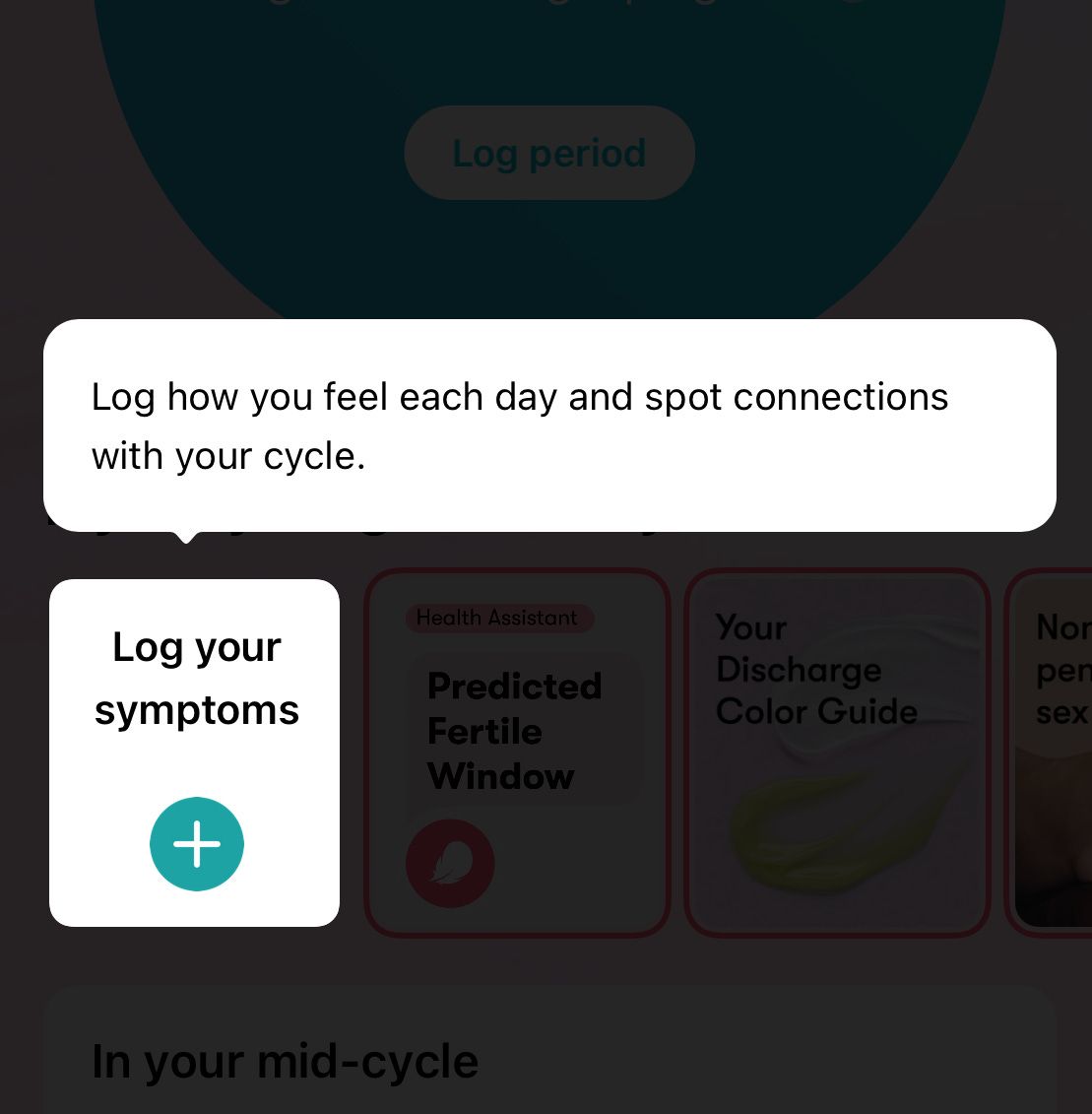
8.
Gamergate or GamerGate (GG) was a loosely organized misogynistic online harassment campaign and a right-wing backlash against feminism, diversity, and progressivism in video game culture. It was conducted using the hashtag "#Gamergate" primarily in 2014 and 2015. Beginning in August 2014, Gamergate targeted women in the video game industry, most notably feminist media critic Anita Sarkeesian and video game developers Zoë Quinn and Brianna Wu, among others. The harassment campaign included doxxing, rape threats, and death threats.
…
Kyle Wagner of Deadspin argued that "Gamergate…refers, variously, to a set of incomprehensible Benghazi-type conspiracy theories about game developers and journalists; to a fairly broad group of gamers concerned with corruption in gaming journalism; to a somewhat narrower group of gamers who believe women should be punished for having sex; and, finally, to a small group of gamers conducting organized campaigns of stalking and harassment against women."
— Wikipedia, Gamergate
9.
Until you log enough cycles for Flo to offer any meaningful insights, the app gently explains what’s needed; I found from outside promotional materials that the insights themselves are extremely detailed and even reviewed by experts, but also easy to parse.
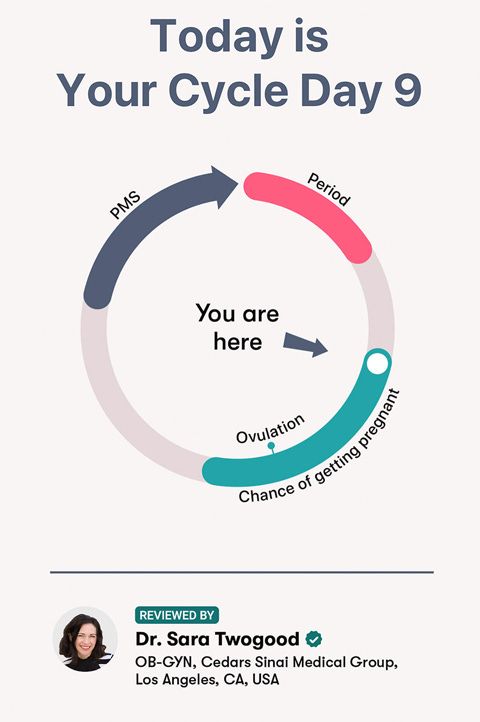
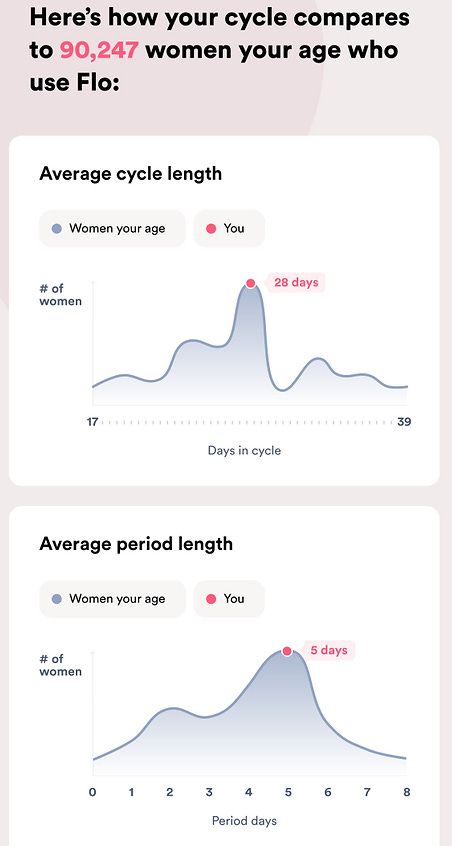
10.
Proposition 22 was a ballot initiative in California that became law after the November 2020 state election, passing with 59% of the vote and…classifying their drivers as "independent contractors," rather than "employees." The law exempts employers from providing the full suite of mandated employee benefits (which include time-and-a-half for overtime, paid sick time, employer-provided health care, bargaining rights, and unemployment insurance)…
Lyft, Uber, DoorDash, Instacart, and Postmates contributed over $205 million into campaigns supporting Prop 22, making it the most expensive ballot measure in California's history.
…
Some of the companies also forced their workers to support and promote the legislation: Uber sent its drivers in-app messages forcing them to click on either "Yes on Prop 22" or "OK", Instacart ordered its workers to place pro-Prop 22 stickers in customers' shopping bags, and DoorDash forced delivery drivers to use bags saying "Yes on 22."
— Wikipedia, 2020 California Proposition 22
11.
Flo fosters community not just in the subscription process but also within the app itself, and heavily so. An entire section of the app is devoted to this — to users teaching, sympathizing with, and especially laughing with each other.
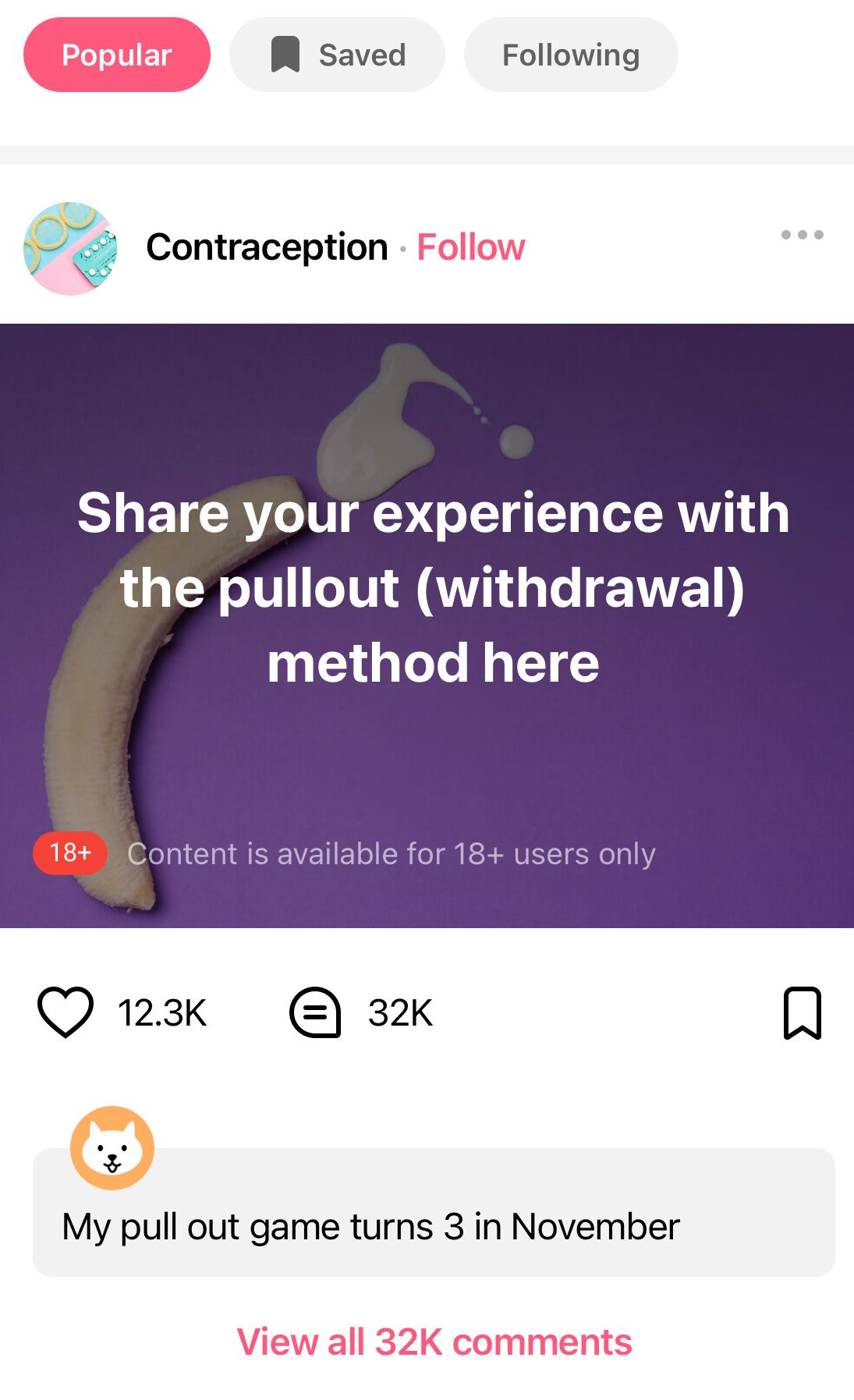
12.
Latice Fischer spent two years in jail because she had a miscarriage in 2018 after Googling abortion pills, and Mississippi authorities used her search as evidence when they charged her with second-degree murder. Indiana resident Purvi Patel's text messages to her friend and her online abortion pill purchase were both used as evidence against her when she was jailed in 2015 for alleged feticide. She spent three years in prison before her conviction was overturned.
— CNET, With Roe v. Wade Overturned, Your Abortion Searches Could Be Used to Prosecute You
13.
Flo provides medical guidance in a clever way: not with giant essays you have to trudge through, nor with snippets generated on the fly by a two-bit AI service, but in the happy middle, with a conversational chatbot that gives you bite-sized chunks of info. The copy and diagrams seem to have been crafted and vetted by professionals.
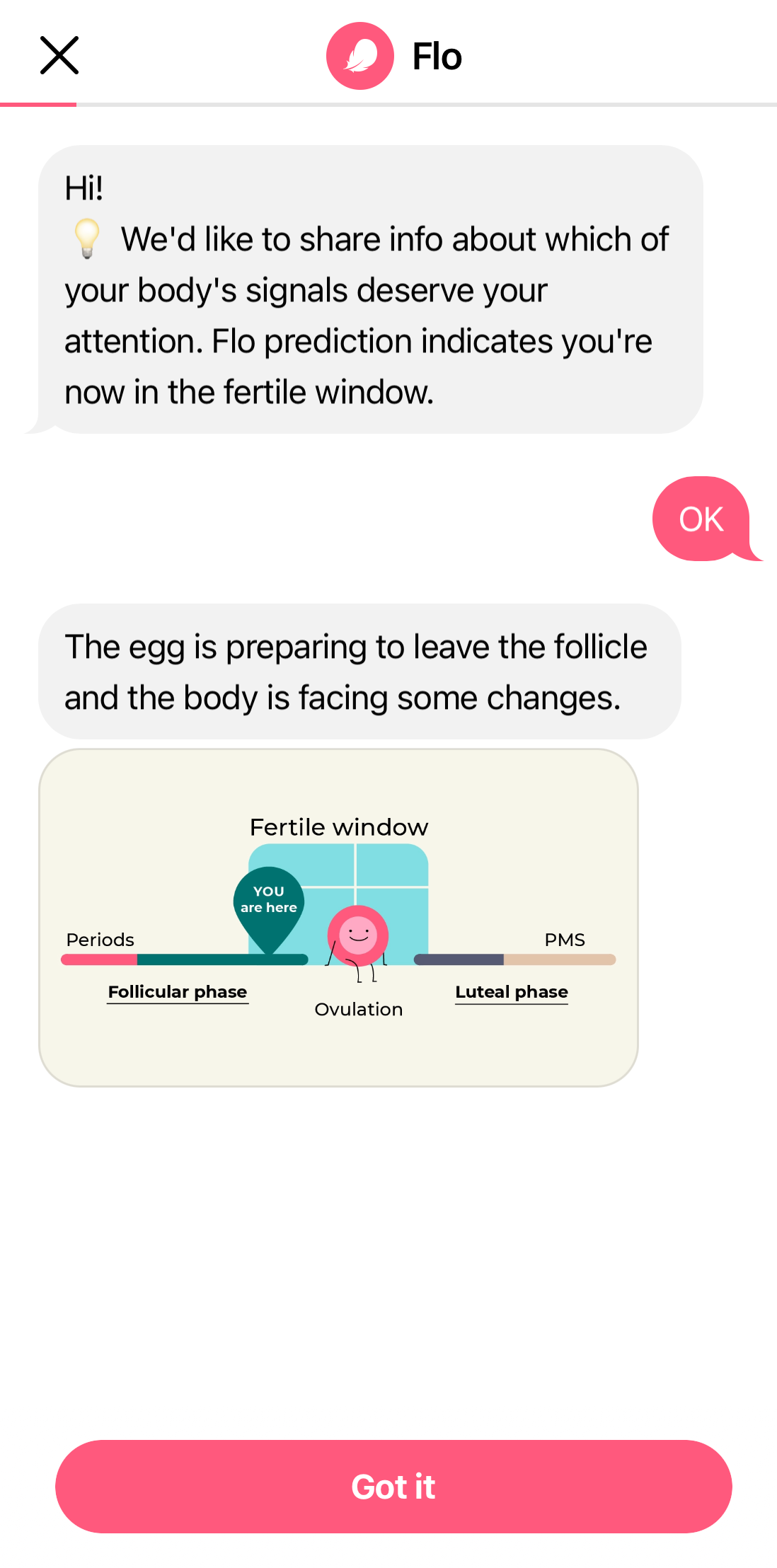
14.
Flo has come under fire for sharing its users’ data before. The company says on its website it only uses data “for research activities” and that it only uses “de-identified or aggregated data, which cannot be associated” with specific users. But an investigative piece by the Wall Street Journal has found that the app informed Facebook when a user was on their period or if they intended to get pregnant. In 2021, the Federal Trade Commission (FTC) reached a settlement with Flo. Under the settlement, Flo must undergo an independent review of its privacy policy and obtain user permissions before sharing personal health information. Flo did not admit any wrongdoing.
— The Guardian, Why US women are deleting their period tracking apps
15.
In April 2023, Washington state passed a law extending HIPAA-like privacy protections to the kind of data Flo collects. You’d think Flo would have vocally supported it; such laws keep Flo’s user base safe. Advocating for them should have been an easy PR slam-dunk, smoothing over their FTC woes, going hand-in-hand with their 2022 rollout of “anonymous mode” in response to the overturning of Roe v. Wade. Instead: crickets.
Of course, many a tech bro (and others) would ask, exasperated, how one could possibly demand this. Are they not already building an app that empowers millions of menstruating people around the world?
How can there be anything wrong with trying to do good? The answer may be: when the good is an accomplice to even greater, if more invisible, harm.
— Anand Giridharadas, Winners Take All: The Elite Charade of Changing the World
Flo’s squeaky clean and thoroughly girlbossified app is not a reason to laud them or excuse their multi-year, multi-million-user data hiccup. It’s a reason to shine an even harsher light on them.
The app’s excellence is a diversion, intentional or no. It distracts from the many other good things it could do and isn’t, and from the bad things it’s done and will inevitably do. And I do mean inevitably: how, given what you’ve read, do you suppose Flo will act when cops from anti-abortion states come after its data? We can take their word for it that “anonymous mode” will be enough protection or we can take the briefest glance at the history of tech.
It’s great that apps like Flo offer menstruating people better things than notebooks with which to track their cycles, but a Flo user on a business trip to the South, thrown in jail because their cycle looked weird, cannot enjoy the app’s benefits. In jail they take your phone away.




